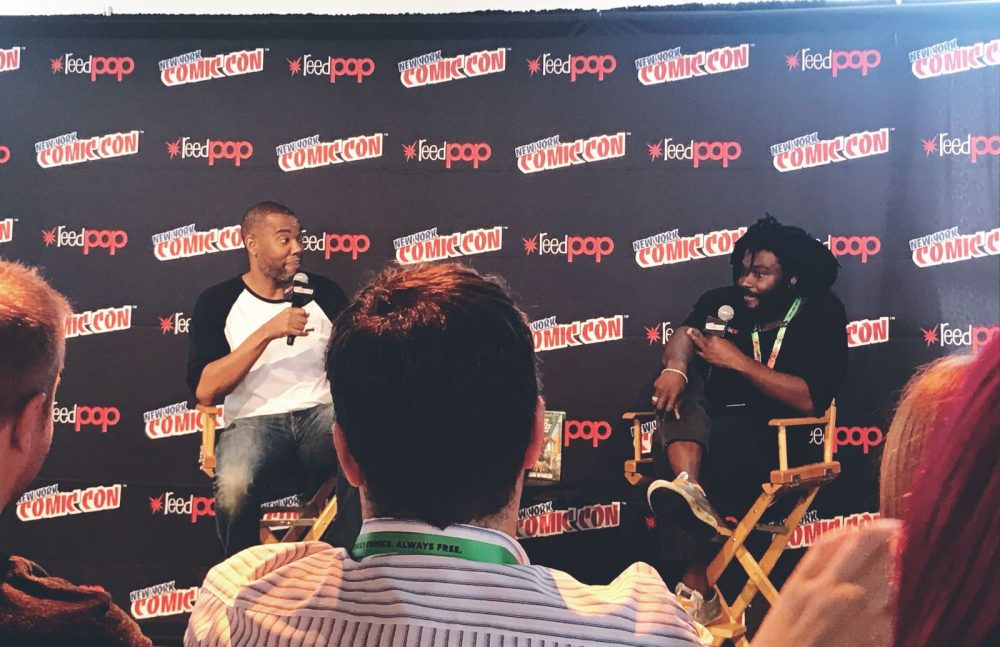
Jason Reynolds (Ghost, Miles Morales: Spider-Man) and National Book Award winner Ta-Nehisi Coates (Black Panther, Between the World and Me) joined together on the first day of New York City Comic Con to talk about heroes, giving a voice to invisible people and of course, a little bit of politics.
At the Hudson Mercantile, a short walk from the Javitz Convention Center fans began lining up at 10:00 AM for the 12:00 PM conversation. Coates and Reynolds entered the room to cheers and applause from a standing room only audience. The two prolific writers spent the majority of the hour asking one another questions about their creative process and how they came to write about superheroes and comics.
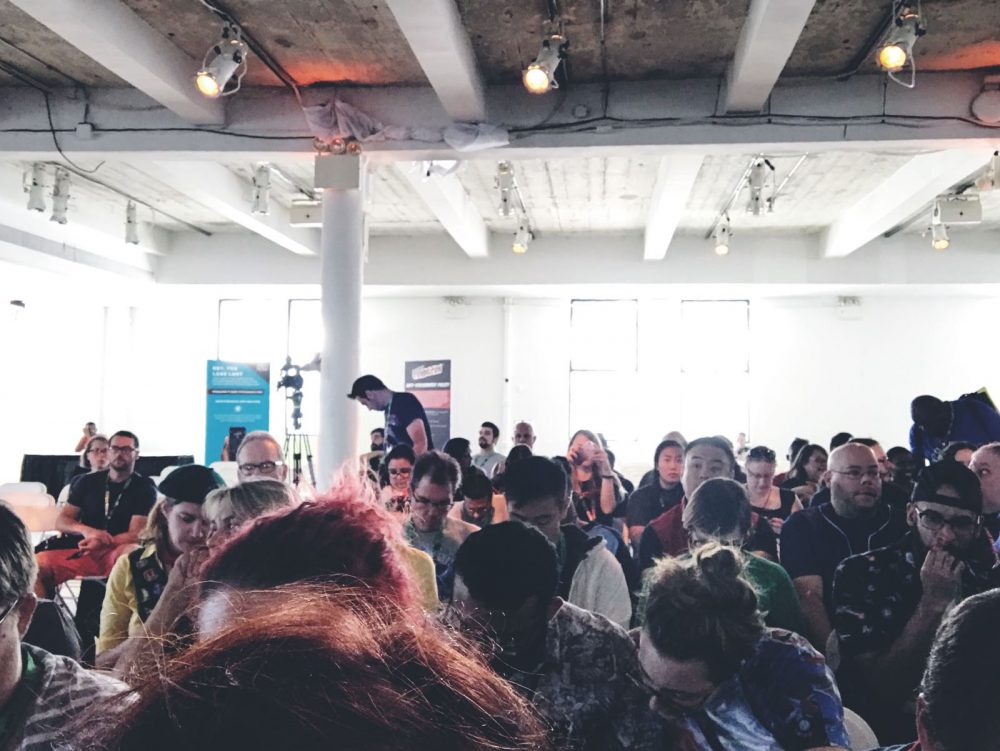
Jason Reynolds began the conversation with a question to Coates about how he came to write Black Panther. Comics have always been a part of life for Coates. “For a lot of people it seems backwards to go from Between The World and Me to Black Panther but in my mind, that’s actually backwards. I started to read comic books when I was eight years old. It was from comics that I got my literary sensibility. For me this feels natural, even though it’s not obvious.” Coates added that he was lucky enough to be contacted by Marvel to write for them.“I probably shouldn’t say this but feel like I would do this for free and I’m kind of doing it for free.” He laughed, “No one goes into comics to get rich. But it’s a pleasure.”
Reynolds asked if Coates felt any pressure when it came to writing Black Panther, to which he said he both did and didn’t. Coates was never the kind of comic book fan that would go to conventions to meet his favorite writers. Instead he takes a kind of ‘never meet your heroes for they always disappoint you’ approach. Coates said he’d go to cons to buy back issues and then quickly go home to read them, “I would have never come to this panel.” The line received an uproarious laugh from the audience.
Coates then flipped the script on Reynolds and asked him the same question. How did he end up writing Miles Morales? Reynolds says he didn’t grow up reading comics, instead he found a pathway through what he called the comic book-adjacent. The 80s and 90s toys and video games about comic book characters. His brother, however, was a massive comic book fan. Reynolds was contacted by Marvel and Disney to write about Spider-Man was initially reticent because he wasn’t sure what more he could add to the Peter Parker story. A story which he thought audiences knew all too well. After Reynolds was told he’d be writing Miles Morales, a half-Black half-Puerto Rican character, he became more interested.
Reynolds loves the opportunity that writing about a 15 year-old provides him. He approached the opportunity to write about this character to explore what it would be like to be a 15-year-old growing up in a community like the one he grew up in and who suddenly has a superpower. Recalling his pitch to Marvel and Disney Reynolds says, “Why don’t we look at what it would be like to be the only one with a superpower in your community? Why don’t we show what is it like to be “special”? What about the deep-seated sort of feeling that so many people in certain communities have, specifically communities of color, specifically poorer communities of color, where there’s this pathology of inferiority where you believe you don’t deserve to be a superhero?”
The story of Miles Morales obviously is built on Reynolds personal life. Reynolds talked about how lucky he feels whenever he goes back to visit Brooklyn or thinks about the circumstances which have allowed him to be where he is today. “This book is for my older brother, a kid who grew up on comics, and superheroes and super powers but was never able to actualize his own superpowers in the way the he wanted to because of some circumstances society dealt.”
When it comes to comics, one of Coates favorite components of them is their ability to explore internal conflict. An exploration which can speak to anyone, anywhere. Stan Lee probably didn’t know anything about growing up in West Baltimore, Coates remarked, but despite this Coates could feel the conflict of his community in Lee’s work. It’s that approach that Coates wanted to take with Black Panther, to ask the question of what comes with the crown? “Does this dude even want a crown? If this dude could design a life for himself is this where he would be, is this how he would do it? And his desire to do it differently doesn’t give him a way out. A crown is a crown. He was born into this. You can’t just walk away from your nation because in some deep profound way you would be walking away from yourself.”
The pair went on to talk about comics continuity and what it’s like writing long-form prose versus narrative for comics. There were obviously challenges for both Reynolds and Coates. For Coates the difficulty was in paring down block text. “I had to learn that the vast majority of my script should be talking to artists–I am talking like 80-90 percent should be that.” Reynolds had to deal with a different set of challenges, making sure his novel was a whole story with no holes. Comics have the ability to reference a previous issue and address previous topics or narrative arcs but with novels there’s only that one opportunity, one chance to tell a really good story.
The conversation ended with a lengthy question and answer session from the audience. One audience member asked about Coates’ recent appearance on the podcast Pod Save America, hosted by three former Obama Administration staffers. In the podcast Coates touches on superhero movies and American escapism. Today, Coates differentiated between superhero movies and comic books which he says don’t actually offer that much escape.
“Most superhero films, there’s a desire, I think, to believe that some sort of being with more power than us but the correct sense of morality will come down and save us and make everything okay. I don’t know how many people go see movies like The Avengers but I gotta say man, after coming through an election with a tremendous amount of consequences but where the actual vote declined, where the level of engagement declined–I can’t help but take a kind of message from that. Where people become fanatical about [superhero films], I mean they become huge, huge events in a way that our politics–which is right now killing us, which is a mortal danger–don’t. […] I can’t help but contrast on that.”
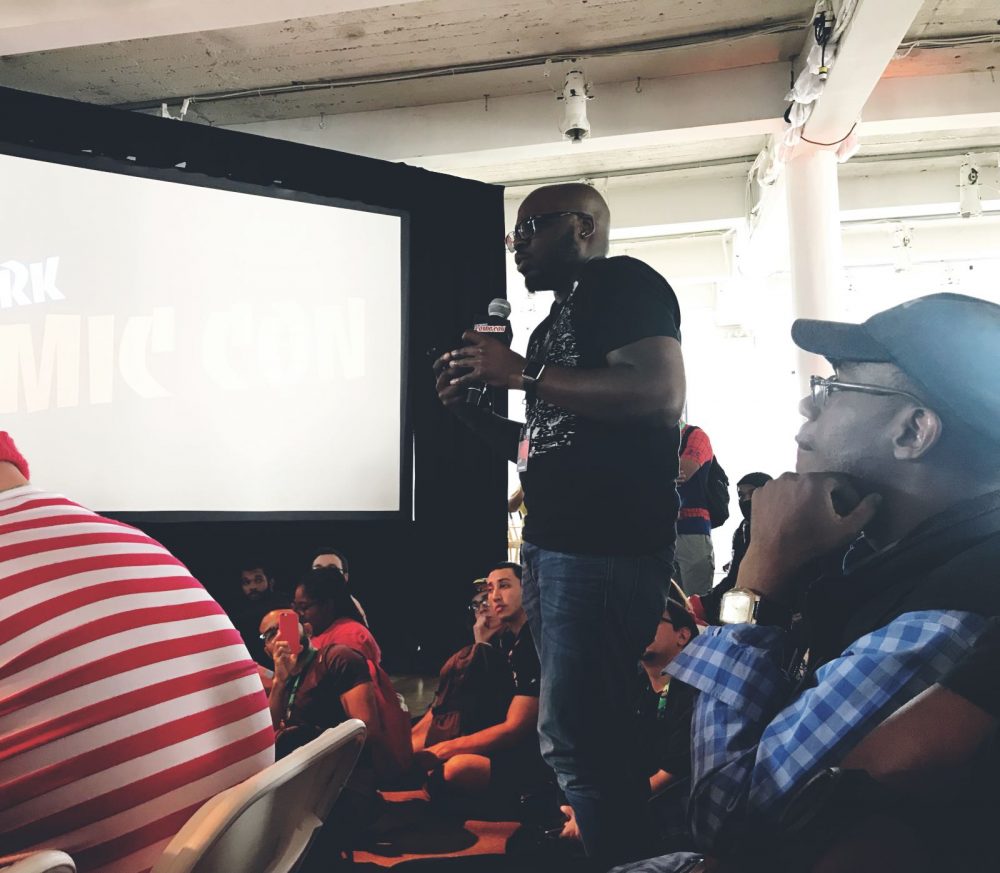
One of the final questions was about how politics informed their writing. For Reynolds writing about the experience of being brown and invisible in America in a nuanced way is how he able to express a political statement. Through exploring the microaggressions Morales experiences at his mostly white boarding school and what it’s like to be invisible both in a superhero mask and outside of it. Reynolds says he also explores the invisible people within communities within the neighborhood Morales grows up in.
In talking about politics in comics Coates brought up the popular retort, which usually goes something like this: “Why are you putting politics in my comic books?” Coates laughed to himself, the audience began to laugh too.
He continued, “Come on buddy. This is not new you know? What do you think X-Men is? Who do you think Captain America is? Your uniform is made out of a flag. Apolitical? It’s funny. It’s actually funny and you have to laugh to keep from crying. I mean Black Panther. Black. Panther. That’s his name! It’s gonna be political! I don’t know how you make it not political. So for me it was tradition, there was no where else to go but politics. That is a central through line in almost any great comic book, in any comic book I love anyway. I bet you there is not a single great comic book arc, and maybe not a single great story every told without any sort of political implications.”
The hour long conversation flew by and it was clear from the audience they would have gladly stayed all day listening to the duo talk. As the audience milled around waiting for elevator they gleefully exchanged information, thanked one another for asking that question they had wanted to know the answer to as well. Most of all, they reflected on who happy they were to have had the chance to see these two authors speak.


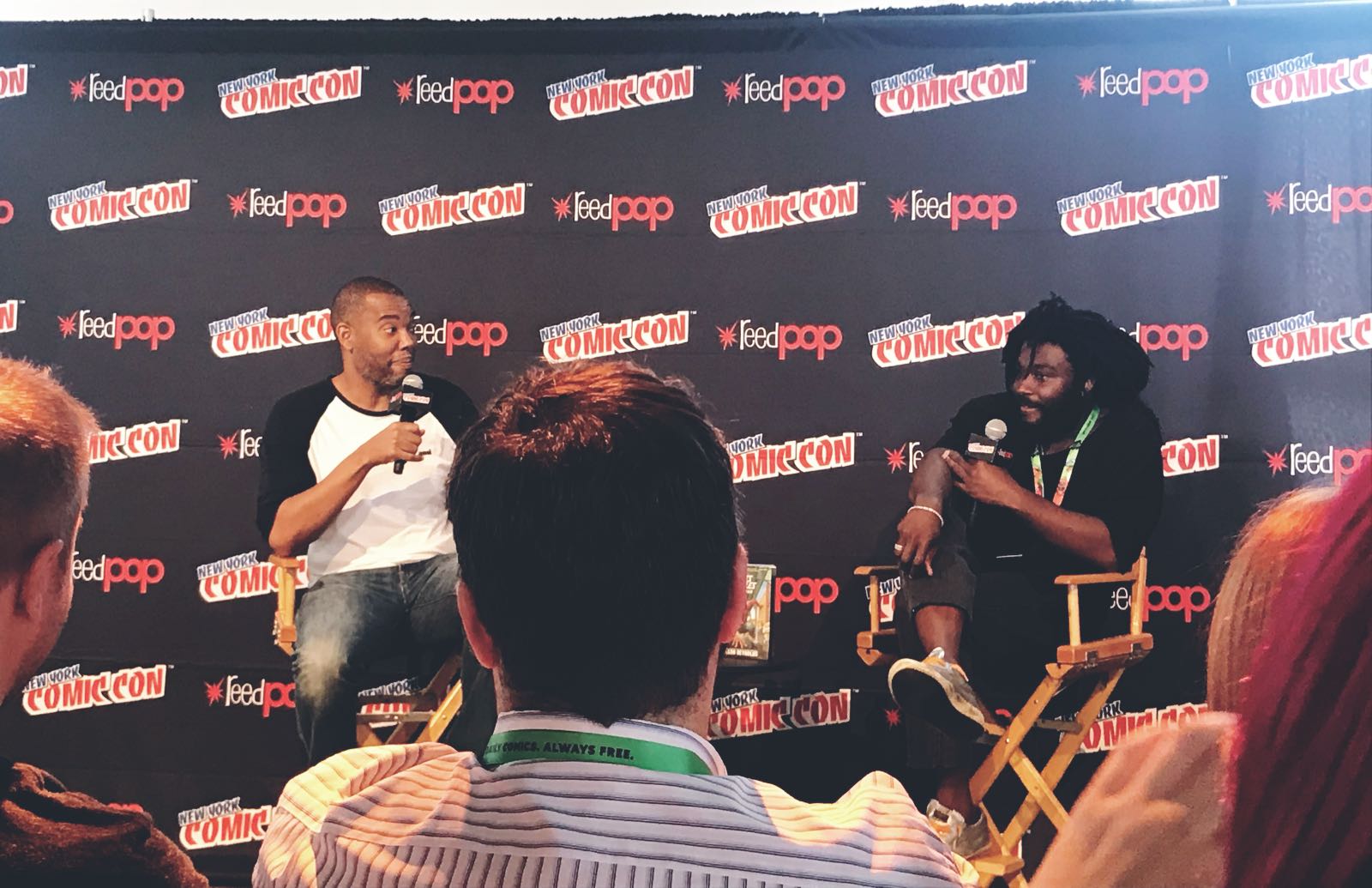
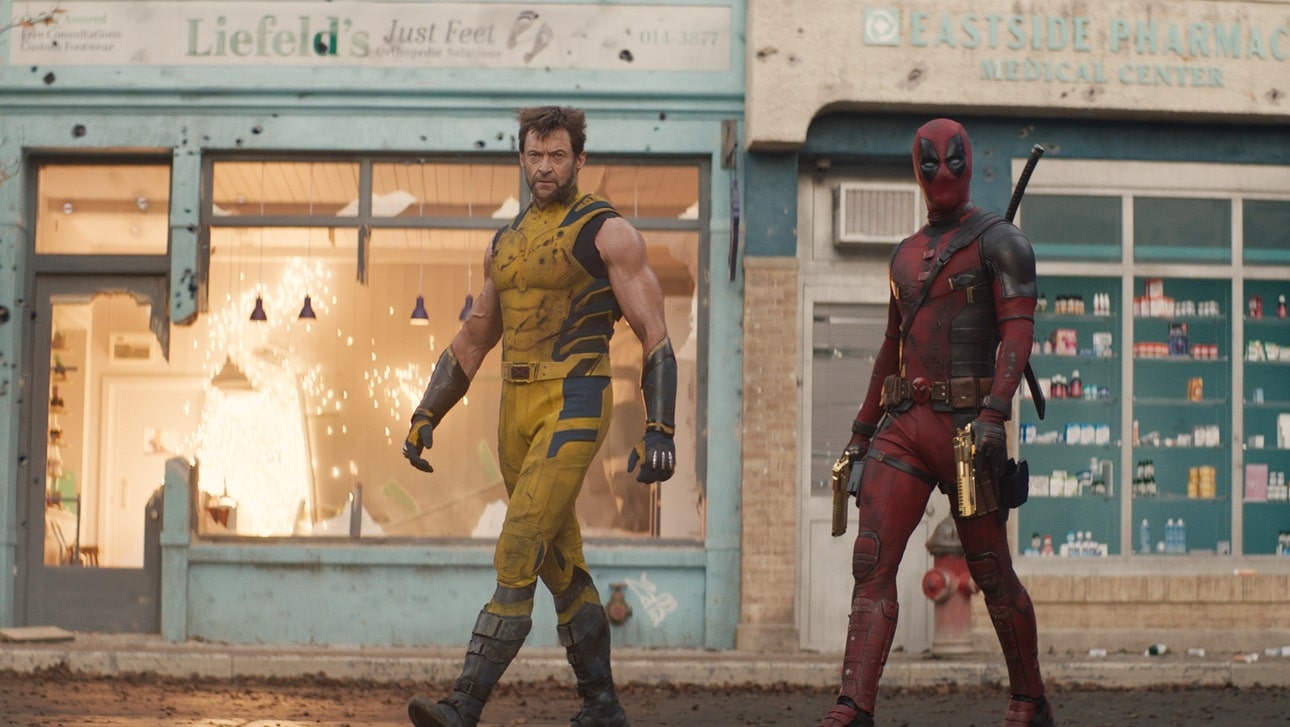




Anyone who complains about politics in comics is basically a Nazi, anyway.
Every single one.
America needs to wake up to how they are horribly mistreating African Americans every single day and you Mr. Ta Neshsis, by writing comics that many people read will help educate them on their evil ways.
i didnt realize there’s a prose book about Miles; gonna have to check it out.
Comments are closed.